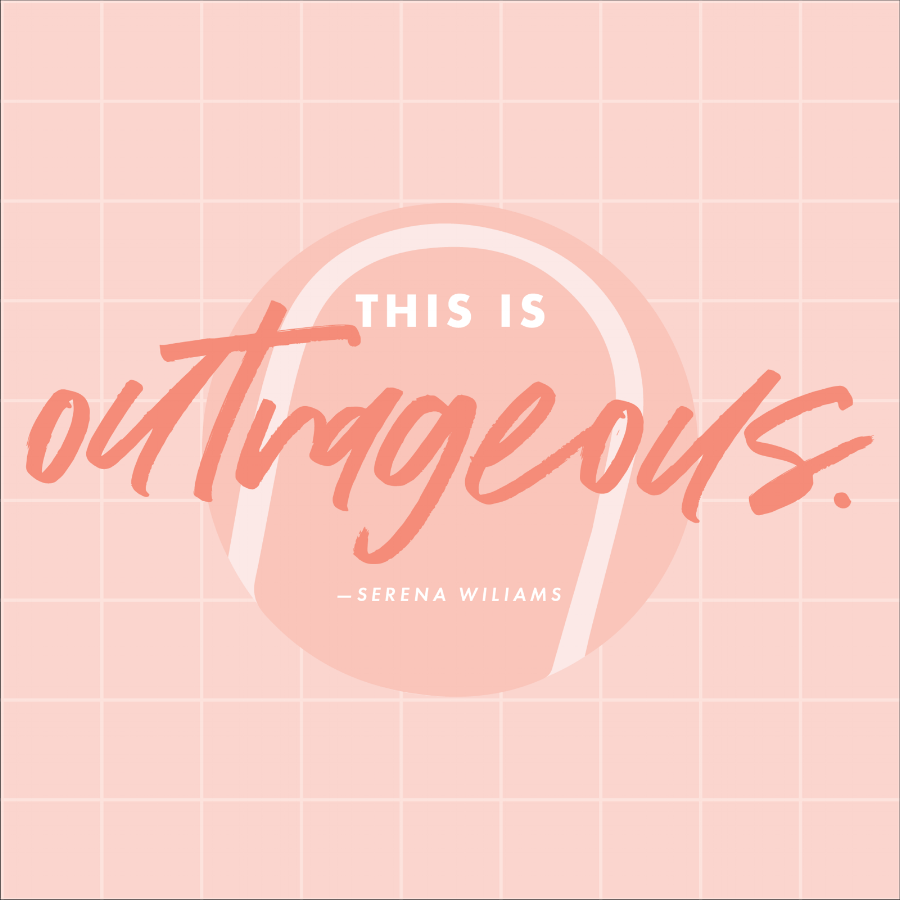Serena Williams, Standing Your Ground & The State of Emotions at Work
You've all heard about, read about it, and definitely need to continue talking about it. This past Saturday, Serena Williams was issued point deductions and had an entire game cut during the women's singles final of this year's U.S. Open. She voiced her opinion about it, as she should, and it didn't end there.
Serena was then hit with a $17,000 fine for code violations. Tournament referee, Brian Earley, ruled that she would be fined $10,000 for verbal abuse, $4,000 for a coaching violation, and $3,000 for racket abuse. The "verbal abuse" that we speak of here is when Serena addressed the referee, stood her ground, and defended both her longstanding tennis career and work ethic. She's Serena Williams, she doesn't have to cheat.
The rest of us may not be killing it on the tennis court, but we face the same struggle of showing our emotions at work. Why is it that when a woman voices her frustrations, it's quick to be labeled as a meltdown or tantrum? Why are we labeled as hysterical for voicing our opinion when something is wrong? As a result of Saturday's events, the tennis sport has been targeted for sexism and handling violations between male and female players differently. A good example comes from early last month when French tennis player Benoit Paire smashed three rackets on the court, and was charged a fine of $16,500 as a result.
The issue here isn't hidden by any means; it's loud and clear as a matter of fact. Serena Williams was punished for voicing her opinion while doing her job, and it's something that every woman faces every day. Sure, we're not getting hit with fines for thousands of dollars, but we can face penalties, ridicule, and even termination for simply stating what's on our minds.
This is something that all women are all too familiar with, but for black women especially, it's nothing new. The way Serena Williams was treated during another huge moment of her career, just proves how hard it is to be a black woman at work. Black women often internally police themselves in the workplace in every way from their appearance, to the way they approach the situations brought in front of them. And you know what? It's not okay. Neither are the descriptions of Williams' behavior on the court. She's been labeled as angry, having an outburst, a furious rant, and everything in between because she defended herself. As she put it, having to go through this experience just sets a terrible example for the next person who wants to express their emotions. We highly recommend watching her post-event press conference here.
The bottom line is that none of us should be punished for stating the facts, saying them loudly, and with whatever emotion is instilled in our voices. The conversation hasn't stopped yet, and it shouldn't stop until we all stop punishing women for saying what they need to say.
We also can't fail to note that her opponent, Naomi Osaka, did not get to properly enjoy her big moment among the chaos. She's the first Japanese citizen (editor’s note: her father is Haitian) to win a Grand Slam singles tournament, and that's a milestone that should be celebrated, and not overshadowed by what others are describing as a tirade or a meltdown. Just as the New York Times put it, it was memorable but for all of the wrong reasons.
By: Andrea Navarro
Here are some of our favorite pieces that hit the matter right on its head.
Mashable provided a breakdown of how the entire situation went down on the court.
Refinery29 called it what it is: sexism.
The HuffingtonPost, highlighted Serena's poise once her opponent, Naomi Osaka became visibly upset at the crowd's reaction to her big win.
Male tennis players came to Williams' defense, including James Blake, who admitted to saying a lot worse on the court and never being penalized for it.
Forbes explained the power of speaking up, in honor of Saturday's events.
The HuffingtonPost also highlighted what some of tennis's meltdowns actually looked like.
Brit+Co. called out the fact that Williams' treatment was both racist and sexist.











